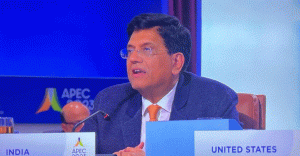
Online shoppers are beginning to earn like influencers by creating content on brands they like, as digital shopping platforms find more value in promoting reviews bearing a more credible cachet of authenticity. Fashion retailer Myntra and direct-to-consumer firms such as snacking platform Farmley are paying customers as much as 20,000 per video to promote their reviews. Such user-generated content is gaining popularity among brands as it generates better returns than influencer-generated content.
In September, Myntra launched its shopper-led creator programme, Ultimate Glam Clan. “The programme empowers shoppers to become creators by encouraging them to share high-quality images of the products bought from Myntra as part of their reviews. This approach enhances content discovery, builds trust and fosters a community where authenticity thrives," said Sunder Balasubramanian, Myntra's chief marketing officer.
The executive told that within a month, over 70,000 users had created more than 100,000 user-generated posts, garnering nearly 500 million views. The brand has spent 13 lakh to compensate these creators, and the best creators have earned up to 20,000 per video, he added. On average, influencers with over 250,000 followers charge 20,000 for a brand video.
Also read | Incentivising shoppers for their reviews, however, treads a thin line. In 2022, the Bureau of Indian Standards issued guidelines requiring e-commerce firms and restaurants to ensure that . In May this year, reported that India’s consumer affairs ministry had proposed a quality control order to on online marketplaces such as Amazon, Flipkart, and Myntra.
User-generated content is typically a voluntary activity that some brands incentivize and some don’t, but in both cases, online marketplaces have to ensure the reviews are genuine. “E-commerce platforms offer a virtual shopping experience, limiting consumers’ ability to physically inspect products. As a result, consumers heavily rely on reviews from other users to make informed decisions," Nidhi Khare, secretary, consumer affairs, said in ’s May report.
“These online reviews serve as social proof, providing insights and confidence to potential buyers, ultimately influencing their purchasing choices. It should not be manipulated to push the sale of any product." Quid pro quo While influencer marketing is a great strategy, user-generated content (UGC) makes brands seem more genuine.
Also, for most users, getting discovered using a brand's popularity is an added motivation to create promotional content. “We believe our customers are our true brand ambassadors. While influencer collaborations help drive awareness and desirability, UGC fosters genuine advocacy and trust," said Sinha, CaratLane's chief executive.
The company features user content received primarily through WhatsApp and Instagram across its social media platforms, including on a UGC-dedicated Instagram handle, CaratLane Expressions, and on CLTV, an in-app feature on its mobile application. User-generated content helps brands target their audience and drive sales among the followers of the users who created the content. The users' social media presence is very personal and influential in their close circles, so brands encourage UGC regardless of the follower base.
“UGC has a lot more authenticity. It genuinely nudges people, especially in the first-degree connection of users, to trust the brand for trials, and then it sets off a virtuous cycle," said Aman Gupta, head of marketing at healthy snacks brand Farmley. “The online community that hasn’t tried the brand’s products also feels that it is being recommended not just by influencers but by genuine customers, so they give the brand a shot.
" Also read | A brand has to pay the creator a licensing fee, essentially compensation for acquiring the rights for the content, which it negotiates on a case-to-case basis, to run it as a digital advertisement and boost its social-media discovery. “Companies use various kinds of contracts to obtain necessary rights and licences to publish customer reviews on social media platforms. Typically, this is done through the company’s website terms and conditions that set out a licence clause granting the company a non-exclusive, royalty-free, worldwide, sublicensable, and transferable licence to use, reproduce, modify, publish, and display the content," said Harsh Walia, partner, Khaitan & Co.
“However, in other situations where the company offers payment, reward, incentives or any other form of compensation in exchange for the review, such disclosure should be clearly made in an upfront and prominent manner, including through the use of an ‘Ad’ label," Walia added. “Further, if the customer review has been edited or manipulated in manner that may render it as a promotional advertisement, it is advisable to make the relevant disclosures in such cases as well." High returns on low investments Not all customers are comfortable sharing brand experiences on social media.
Still, according to research by tech-powered creative group Accenture Song, UGC is still poised to gain traction. “In today’s digital economy, UGC is rapidly transforming how brands and consumers interact. In fact, as per our research, two-thirds of consumers in India consider UGC to be as entertaining as traditional forms of media," said Deepak Bakshi, managing director of Accenture Song in India.
But can it become an alternative to influencer marketing? UGC's high returns on low investments certainly makes it a favourite. “As a brand, I would any day prefer UGC over influencer marketing as it is more real and legitimate," said Shankar Prasad, founder of beauty brand Plum Goodness. Also read | However, as influencer marketing has a wide reach and a large share, the founder doesn’t see it as an alternative but a supplement to influencer marketing.
Plum has an 85:15 split between influencer marketing and UGC. "UGC is an effective marketing strategy, but it is at an initial stage in India. While it is not a big threat to influencers at present if brands put in the effort and scale it to a certain level, influencer marketing campaigns can take a hit," said Sagar Gokhale, co-founder of media marketing company Qyuki Digital Media.
“That said, it is a long way to go for this content strategy to become an industry standard and replace influencer marketing," he added. Also read |.














